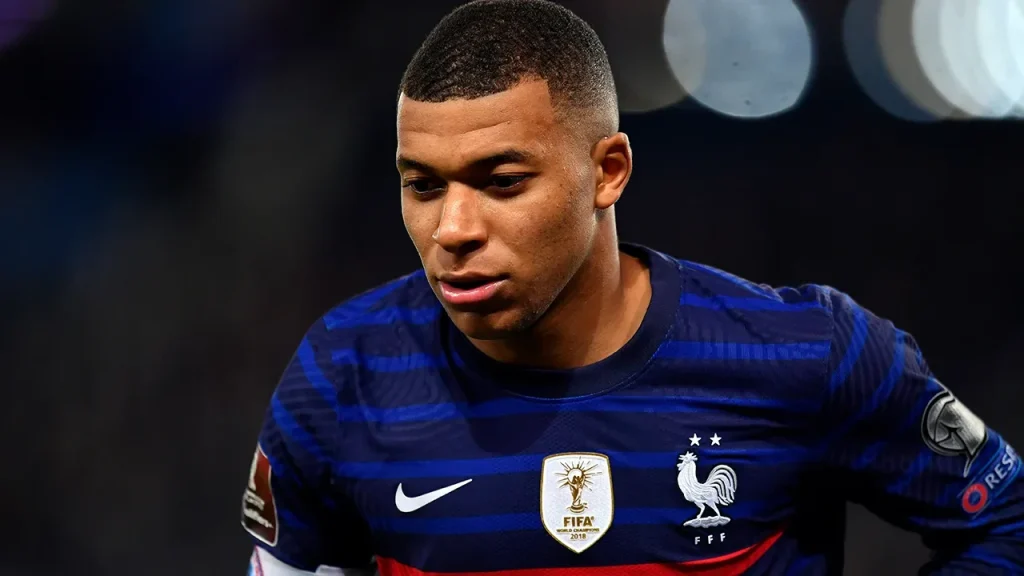The French Football Federation (FFF) is navigating a delicate situation after star striker Kylian Mbappé opted out of a promotional photo session with team sponsors, including Volkswagen, Uber Eats, Orange, and Coca-Cola, ahead of France’s friendlies against Côte d’Ivoire and South Africa in March 2022. The 23-year-old Paris Saint-Germain forward, known for his 24 goals in 53 international matches, sparked discussions by refusing to participate, citing discomfort with certain brands. The FFF is now working to clarify players’ obligations for such publicity duties during international call-ups.
A Non-Rebellious Stance
Mbappé’s legal team issued a statement to AFP, clarifying that his absence was not a rebellion but a call for dialogue about image rights. “This episode does not in any way question the involvement of Kylian Mbappé or his attachment to the French team,” they emphasized, highlighting his frustration with how his image is used for products he doesn’t endorse. The incident has prompted the FFF to engage with Mbappé’s advisers to resolve the issue, with FFF president Noël Le Graët downplaying its severity. “I don’t think there’ll be any problems with him and his teammates,” Le Graët told L’Équipe, expressing confidence in a swift resolution.
Financial Stakes for the FFF
The controversy carries significant financial implications, as sponsorships account for approximately 90 million euros of the FFF’s 240 million euro annual revenue. Under current image rights agreements, players consent upon their first international cap to appear in promotional materials, with up to five players featured in game posters. The 23-man squad shares the resulting revenue equally. Mbappé, who donates his share to charity, joins high-profile teammates like Paul Pogba, Antoine Griezmann, and Hugo Lloris as a prime target for sponsors, amplifying the stakes of his protest.
A Broader Challenge to Football Marketing
Mbappé’s stand has ignited a broader conversation about player autonomy in football’s commercial landscape. Gary Tribou, a marketing lecturer at the University of Strasbourg, told France Info, “Kylian Mbappé has called everything into question—legally, economically, and therefore socially.” He argues that players’ opinions on brand endorsements must now be considered, challenging traditional sponsorship models. With the 2022 World Cup in Qatar approaching, Le Graët expects the issue to be resolved before the next round of promotional activities, but Mbappé’s actions may set a precedent for future negotiations.
Mbappé’s Legacy and Future Implications
A key figure in France’s 2018 World Cup victory and the 2021 Nations League triumph, Mbappé’s influence extends beyond the pitch. His decision to challenge the FFF’s sponsorship practices highlights a growing demand for player agency in the sport’s commercial dealings. As the football world watches, this dispute could reshape how federations balance financial interests with players’ personal values, potentially influencing global marketing strategies ahead of major tournaments.






